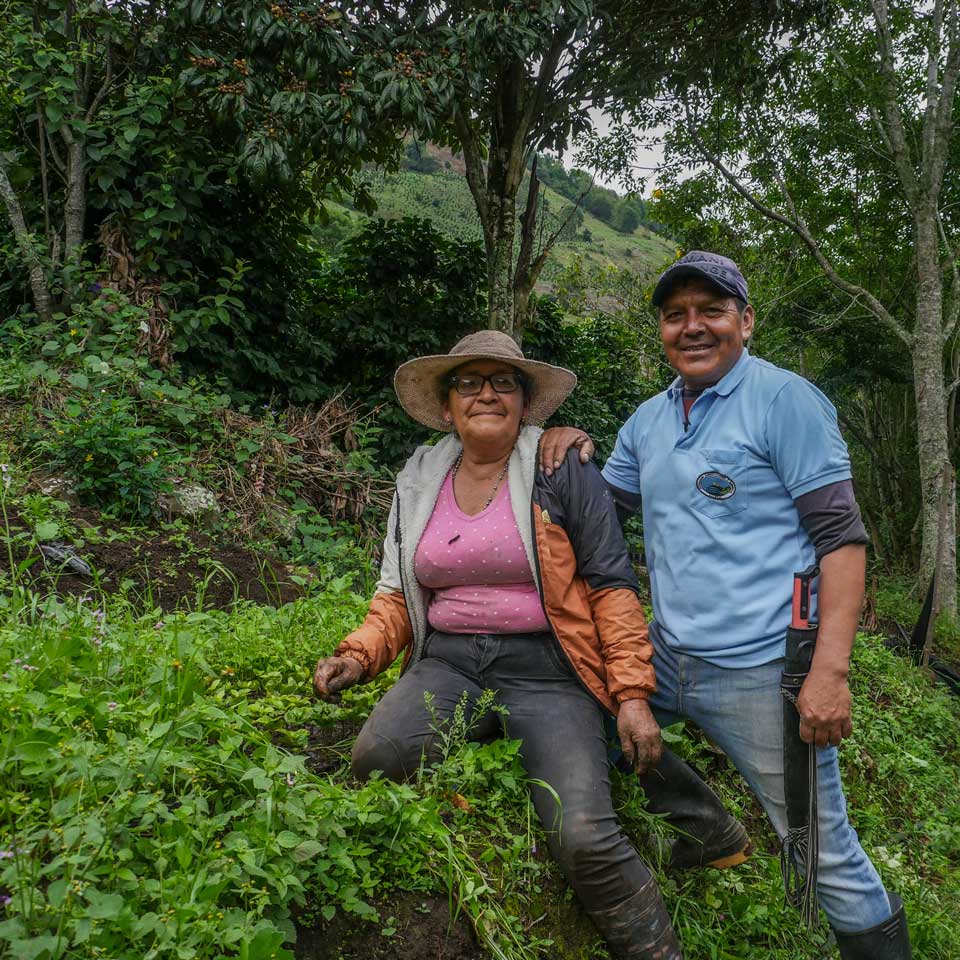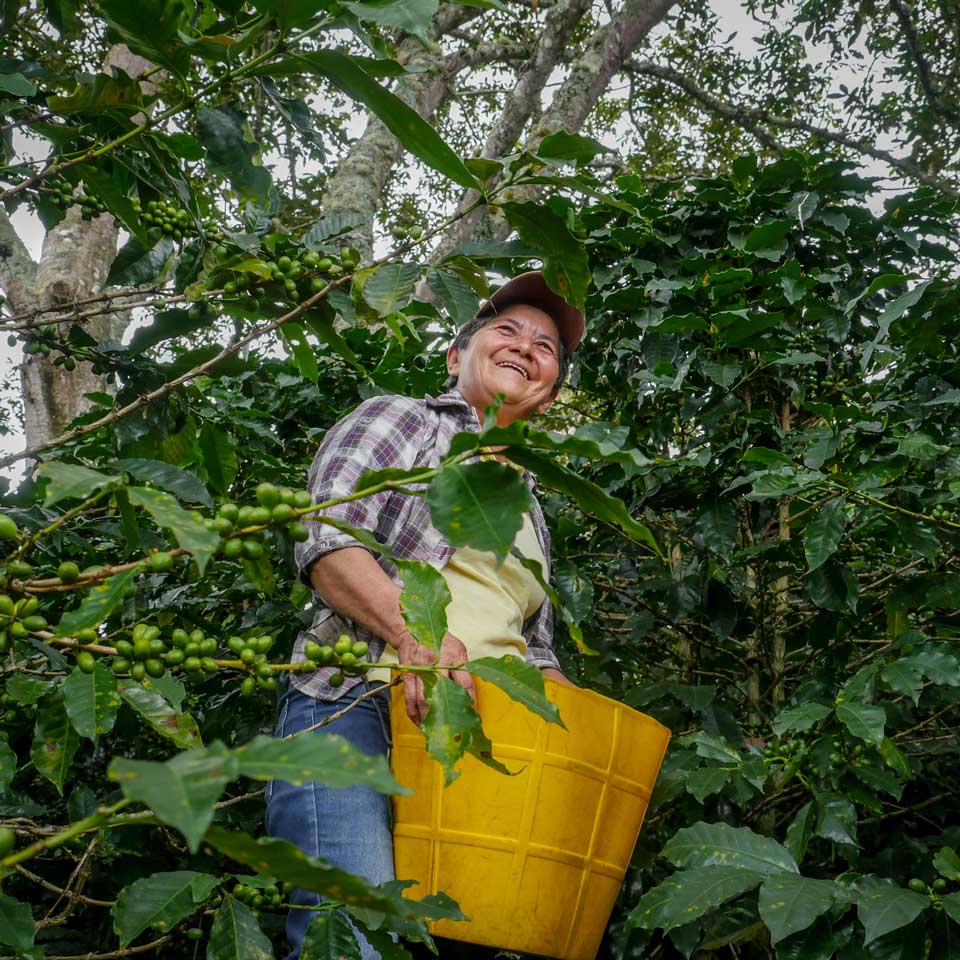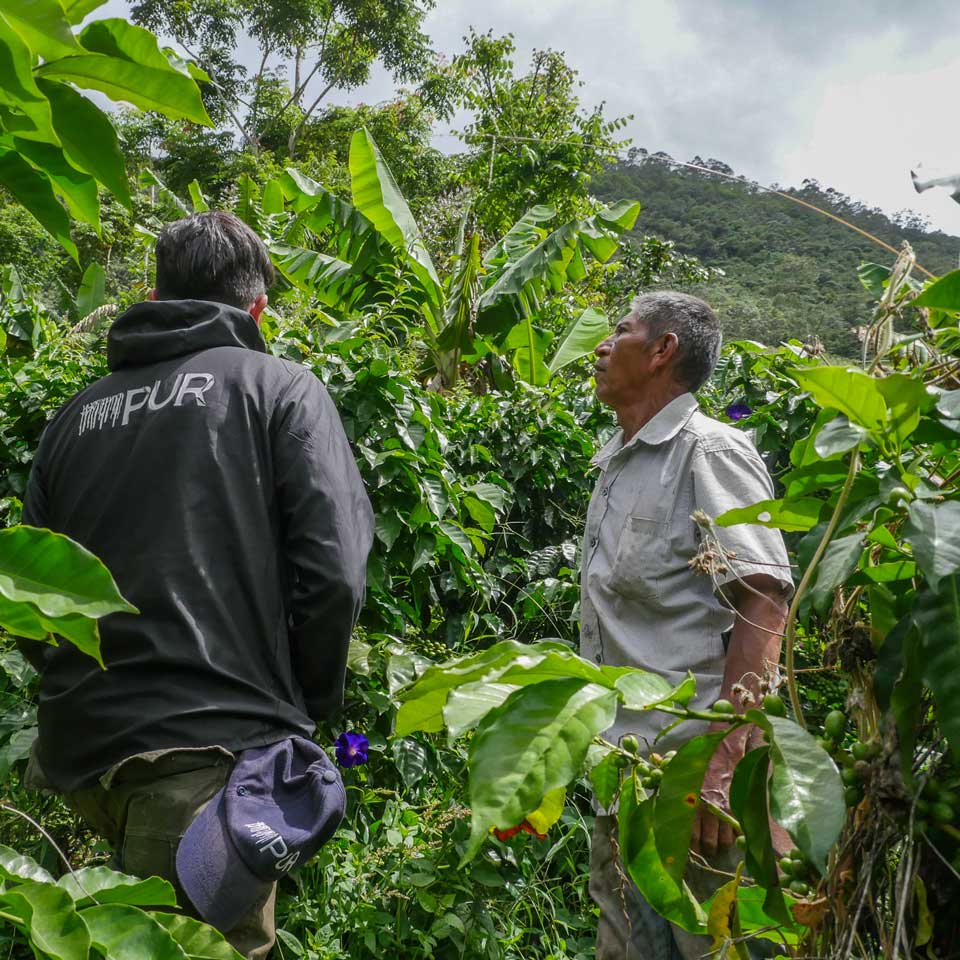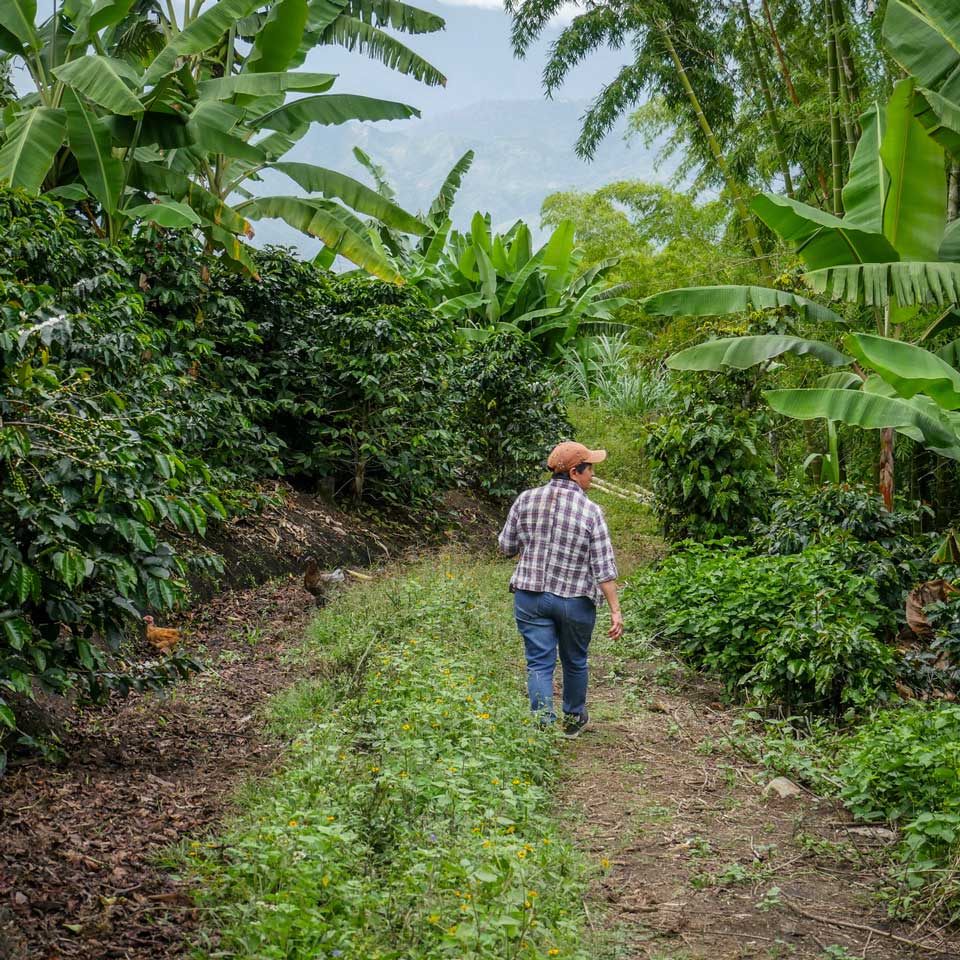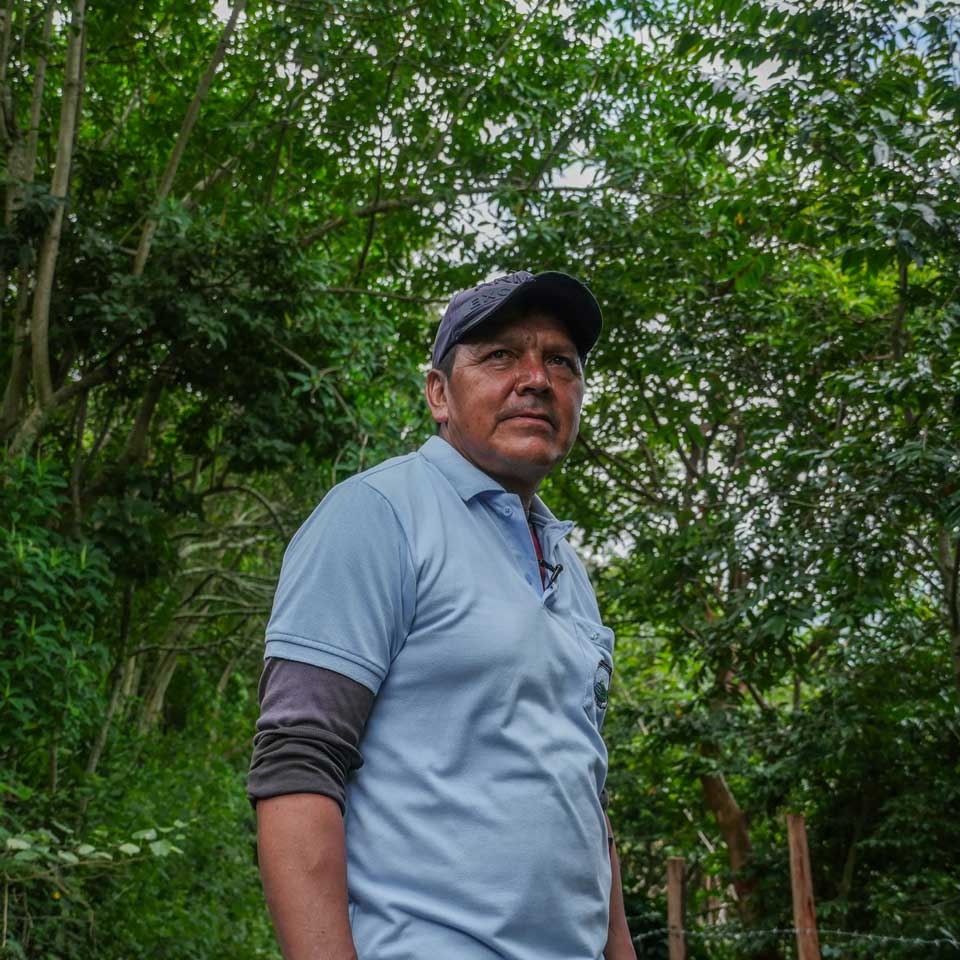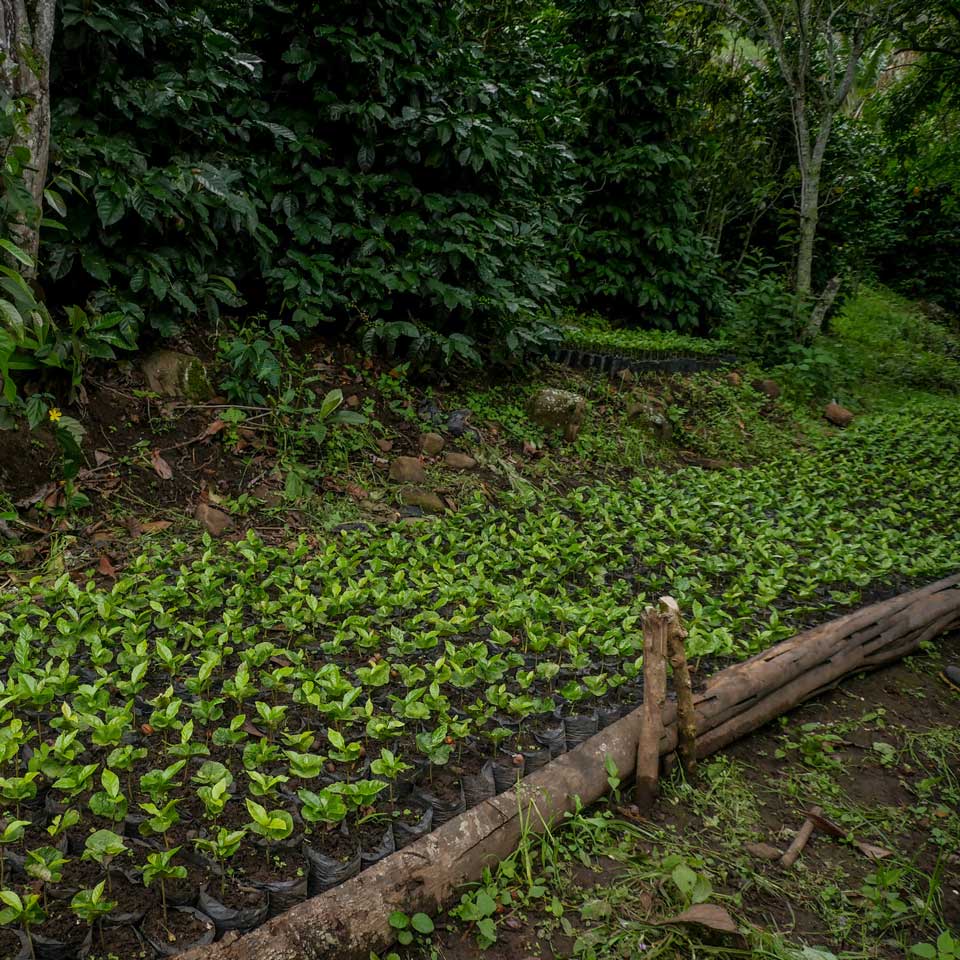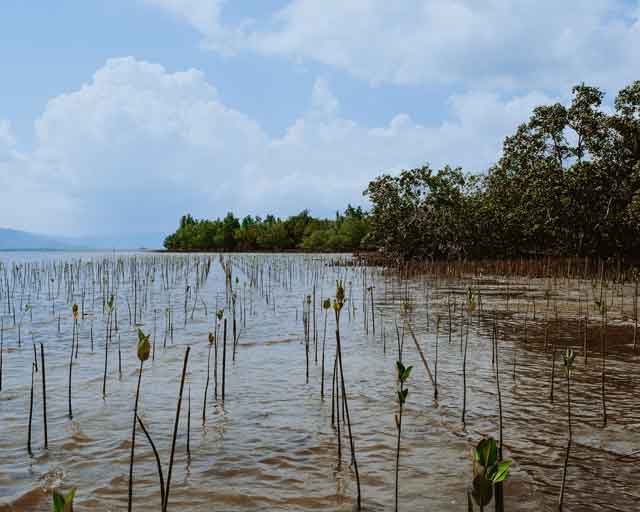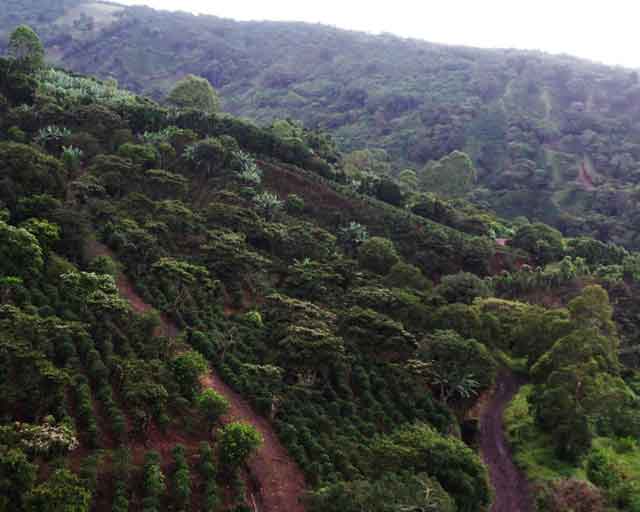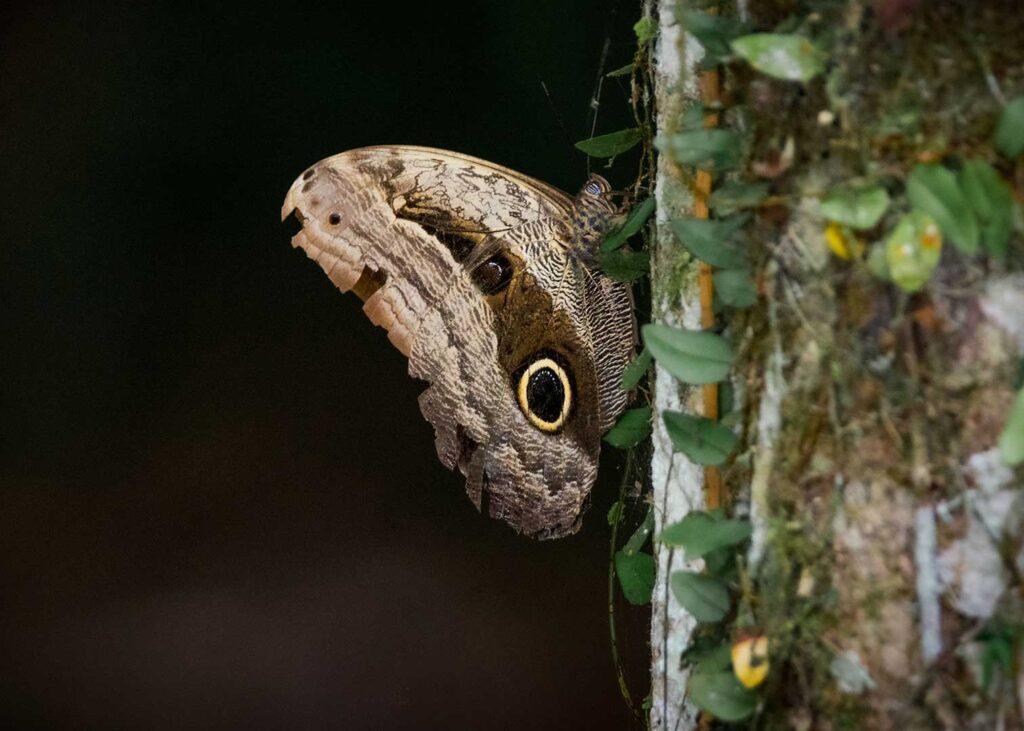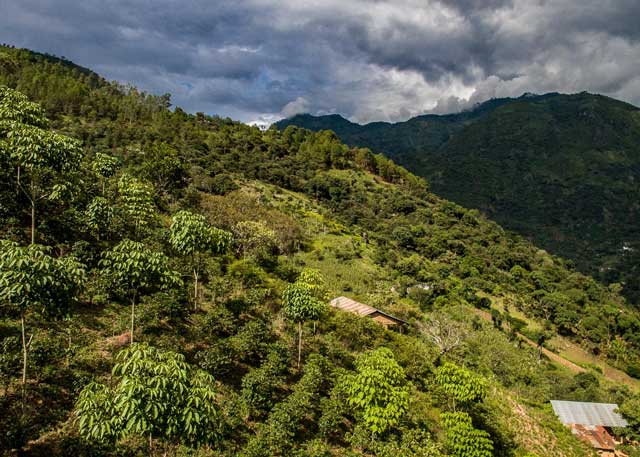Why Local Tree Nurseries are Crucial in Restoring Coffee Landscapes, and What We’re Doing to Help
With its many dozens of micro-climates, nutrient-thick hills, high elevation and wet climate, Colombia is the perfect place to grow coffee. Yet, like many regions in the world, its farmers face ecological stress which puts pressure on their land and livelihoods. Agricultural expansion and unsustainable crop strategies have exacerbated the challenge, particularly in Colombia’s Cauca and Nariño mountain regions.
That’s why PUR has developed and scaled up coffee agroforestry projects in the region. Through our multi-stakeholder collaborations and our approach to integrating trees within coffee farming systems — which enhances ecological, economic and social resilience — we create real impact. And, we directly involve farmers, local cooperatives, and corporations in landscape restoration along the way.
The development of tree nurseries has been a crucial part of this process. “The idea here is to conserve trees or species within our regions that have been lost over time,” says Alex, a technician working with the Colombian Coffee Federation (FNC), a key field partner on this project. “Through the development of tree nurseries, PUR has tried to recover these species and reintroduce them, so that coffee farmers in the long term can propagate the same species within their region. That is something very beautiful that comes from PUR.”
Organizations like FNC, have supported the development and implementation of our projects for the last ten years. Together, we’re working to establish strong local networks dedicated to building ecological resilience in the region through long-term agroforestry initiatives.


